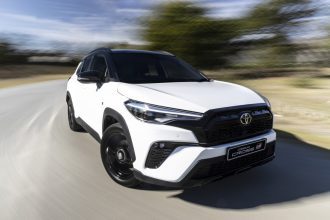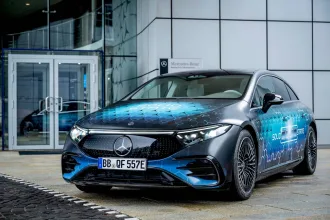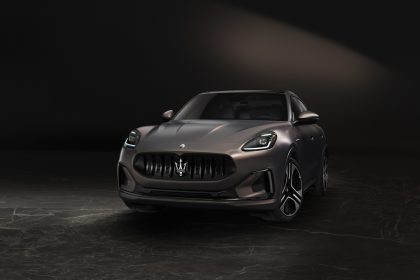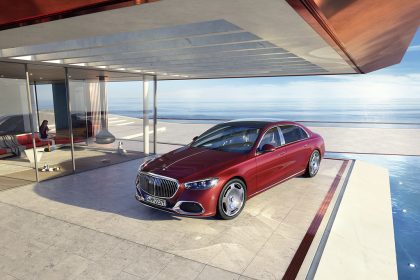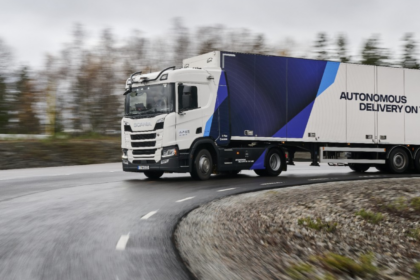By Christian Levin, Scania President and CEO
Scania’s net sales increased by 42 percent to SEK 45.8 billion and with an adjusted operating income of SEK 6.2 billion, adjusted operating margin came in at 13.5 percent (8.0). Overall global truck demand remains at a high level in our key markets, with the exception of Latin America where the weakening economy is affecting demand. For Scania’s buses and coaches, demand is gradually coming back from low levels after
being hit hard by the pandemic. Order intake for our Power Solutions is at an all-time high, driven by the strong momentum among OEMs. The high activity levels in the quarter were reflected in our service sales, which grew by 15 percent adjusted for currency.
The supply chain situation continued to improve in the first quarter, although still unpredictable. Our efforts to stabilise the system have paid off and I am proud to see Scania demonstrate truly cross-functional work and, truck volumes to our customers are increasing as a result. The higher volumes and improved capacity utilisation in production impacted operating income positively. So did positive currency effects and price increases.
The transition to the new Scania SUPER powertrain is now almost complete in our European industrial system and the transition in the Latin American production system is underway. In the European system we have successfully started test production of the new battery electric truck for regional haulage that will be
delivered to our customers in the second half of the year.
In these disruptive times for our industry, Scania benefits from the collective strength of the TRATON GROUP when it comes to sharing technology and investments. For the transport solutions of the future, the need to offer new financial solutions is emerging and that requires enhanced funding capabilities. To fully leverage
on the strengths of the Group, Scania’s successful financial services business serves as a blueprint for TRATON FINANCIAL SERVICES – a global commercial vehicle financial services structure. The Group brands, including Scania will benefit from a common backbone, while the customer experience will remain unchanged. As the Financial Services business has been divested to TRATON GROUP, Scania’s financial reporting segment structure has changed and now consists of a single operating segment, Vehicles and Services.
Another update in Scania’s financial reporting is the specification of order and deliveries of zero emission vehicles (ZEV), which will make it easier for Scania’s stakeholders to track the progress of our electrification journey. In the first quarter the number of ZEV deliveries tripled compared to the same period last year.
Electrified transport involves a complex network of interdependent elements, including not just vehicles but also charging requirements. Therefore, shifting to electrification will be challenging without the right information at hand, at the right time. With data retrieved in collaboration with our customers from a vast number of connected Scania vehicles worldwide, combined with our expertise in using that data, we can provide our customers with information on how to organise the scale-up of electric transport responsibly and economically. We recently announced a pilot with Axel Johnson, one of the largest trade and service companies in the Nordic region. Using Scania’s models and analytic tools applied to Axel Johnson’s operations, we are examining through digitised scenario modelling how electrified transport can operate and be charged in the most economically viable manner.
Collaborations and pilots like these allow us to explore the new ecosystem of energy supply, storage and vehicle charging, opening up new business opportunities to meet the demands of cities and society for electrified transport solutions.
In order to seize these new business opportunities and ensure a broad market uptake of electric vehicles, we are of course making huge investments. So are our peers in the heavy vehicle industry. But we need full support from policymakers for the business case of zero emission vehicles to materialise. We salute the EU’s ambitious targets which are in line with our own, but we also need the enabling factors in place.
These factors include access to green electricity and charging infrastructure, price parity between electric and fossil-driven transport and minimising distracting regulations. Only by presenting a framework that
allows heavy vehicle manufacturers to focus their efforts and investments solely on new technologies, can we decarbonise road transport at the scale and pace required.


